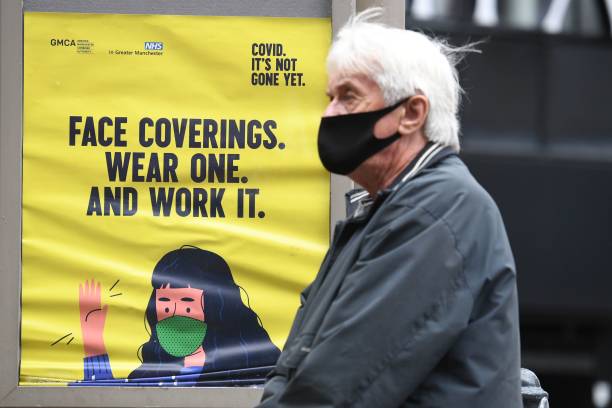Wales
After a temporary decrease in new daily figures, Covid rates in Wales are rising once again.
Whilst the Health Secretary in England announced yesterday that the country wouldn’t be moving ahead to Plan B – which could see vaccine passports being introduced, mask wearing indoors, and people being asked to work from home – Wales has already been following most of these measures for months.
Wales’ case rate currently stands at 617 per 100,000 people over a period of seven days and the country is currently classes as being “Covid Stable,” meaning restrictions introduced earlier on in the pandemic are not set to be reimposed.
Currently in Wales, mask wearing is the law in shops, on public transport and in hospitals and social care settings. The only exception is in pubs, restaurants and nightclubs where they are not mandatory, although people are expected to obtain an NHS Covid pass if they attend large events and nightclubs. People are also advised to work from home if they can.
Will Christmas go ahead?
The Welsh government says it is monitoring the situation very closely and that Wales is currently set for a more “normal Christmas.” However, plans have been drawn up detailing changes to Covid restrictions should the situation escalate – known as “Covid Urgent,” with the country likely to return to the alert level list it had in place last year.
The Welsh government has iterated they don’t think Covid Urgent measures will be needed this autumn or winter, but does not rule them out.
Scotland
The Scottish Government has confirmed that experts are keeping a close eye on the latest strain of the virus, known as the ‘Delta Plus’ variant.
Latest figures show that the new variant make up 6% of all new cases in Scotland. Earlier this week, Nicola Sturgeon called for her cabinet to “monitor the new variant,” saying cases remain “higher than we’d like.”
She said: “More generally, cases here – though lower than few weeks ago – remain higher than we’d like. So please take care: wear masks, wash hands, ventilate indoor spaces & get vaccinated.”
Secondary school pupils in Scotland will continue to wear face coverings in class.
According to figures from the Office for National Statistics, infection levels have been falling in Scotland from 2.3% in mid-September, to 1.3% last week.
Northern Ireland
The planned easing of restrictions is still set to go ahead on 31st October, with the reopening of nightclubs and social distancing in hospitality venues scrapped.
Deputy First Minister, Ms O’Neill, said: “As we’ve always done, when we make an easement or relaxation it takes a number of weeks to understand the impact of that,” she said.
“I want to keep moving forward but there has to be a steady, slow progression out of restrictions.”
Possible measures are in place that ministers could impose if cases rise sharply or hospital pressures become “unsustainable,” with one option being the use of Covid-19 vaccine passports in hospitality venues, a system already in place in the Republic of Ireland.
Ms O’Neill said the “strongest message” for the public to adhere to right now was to get vaccinated and be “careful and sensible”.
The NI Covid-19 Contingency Plan can be found here.






 Featured Training
Featured Training
OUR MEMBERSHIP
We're here to help make your catering business a success. Whether that be starting up or getting on top of your compliance and marketing. We're here to help you succeed.
Want our latest content?
Subscribe to our mailing list and get weekly insights, resources and articles for free
Get the emails